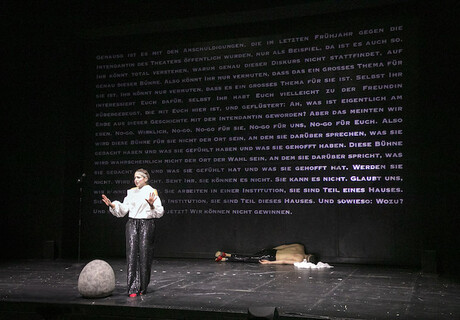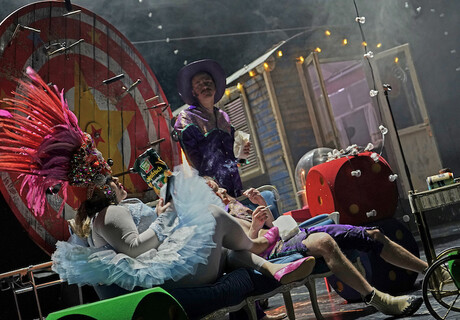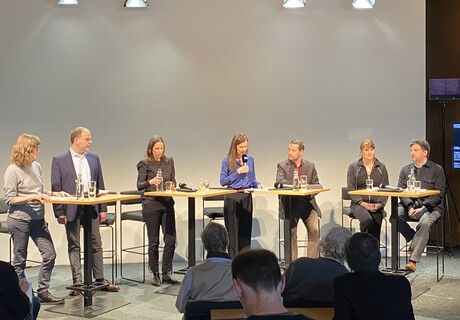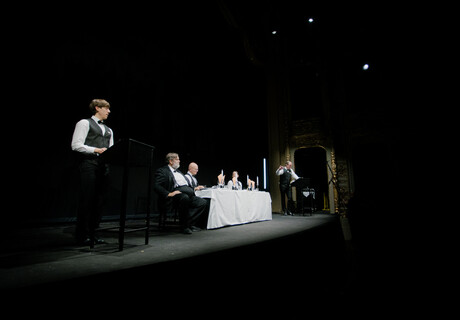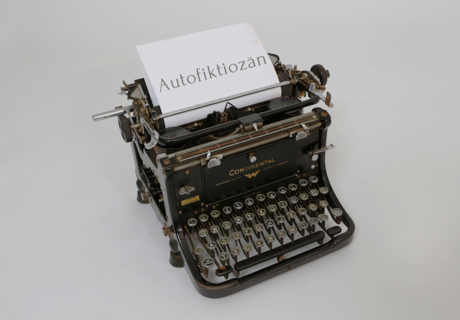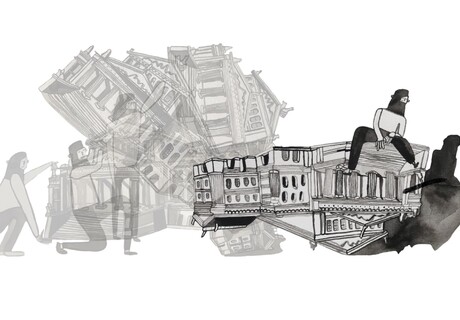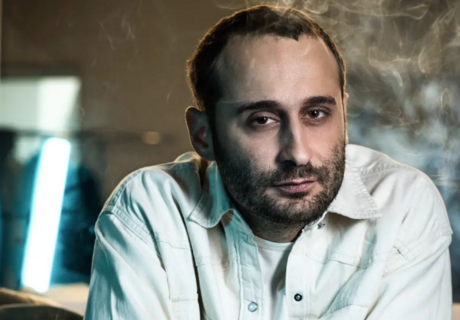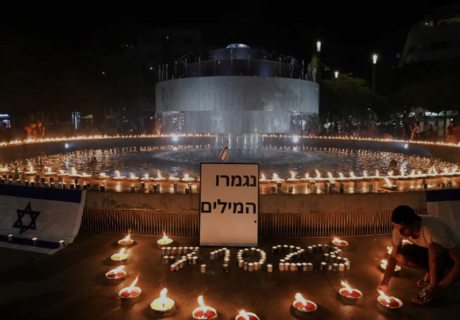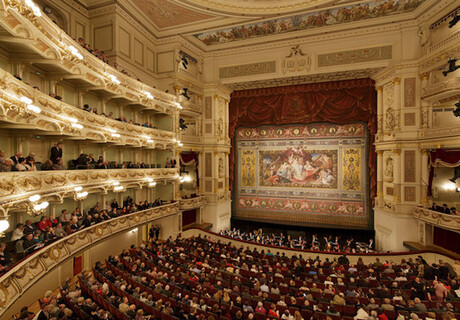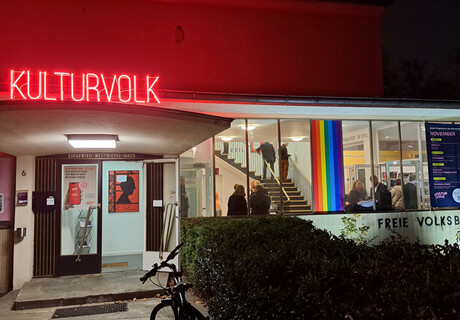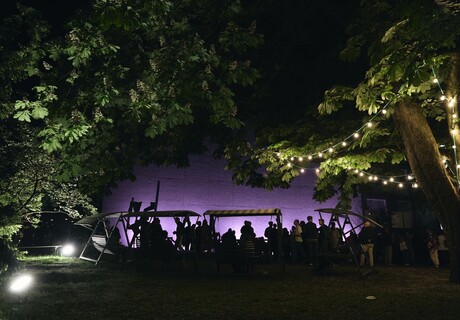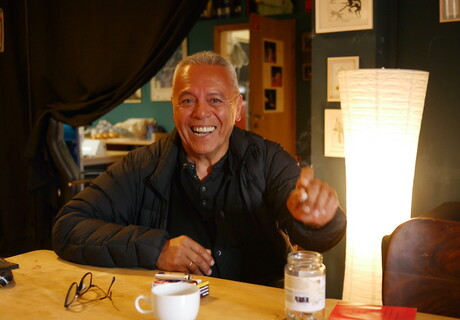After six months of protests against Chinese influence - Theatre author and director Pat To Yan in an interview on the situation of Hong Kong's democratic movement
A boost for our morale
Pat To Yan interviewed by Elena Philipp
9th December 2019. For half a year – since June 9th, 2019 – Hong Kong youths are taking to the streets. What began as a mass demonstration against an extradition bill and against the policy of Hong Kong's Chief Executive Carrie Lam has developed into a huge protest movement for democratic rights. With the situation escalating, at moments it seemed possible for Chinese army forces to invade. The victory of democratic parties during the District Council elections in November seems to have prevented this for now. The protests continue, nevertheless. What's the situation at the moment? What role do the arts play in the democratic movement? An e-mail-exchange with the Hong Kong theatre author Pat To Yan.
Elena Philipp: Mr. Yan, where are you right now? What's the situation in Hong Kong, what's your personal situation? Are you in danger?
Pat To Yan: I'm in Hong Kong now. I'm safe. I also joined the protest. In most of the situations, I know how to protect myself for not to be arrested, e.g. knowing where to escape. Nevertheless, as you know, there's nothing for sure. Some young protesters were arrested at home a few days ago because they were filmed in a protest.
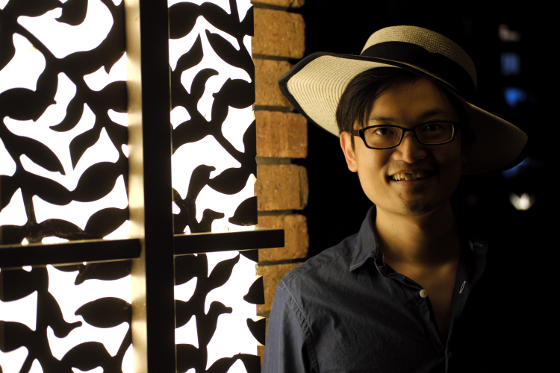 Dramatist and theatre director Pat To Yan in Hong Kong © Ted Kim
Dramatist and theatre director Pat To Yan in Hong Kong © Ted Kim
After the landslide victory in the District Council election, Hong Kong Police have retreated from attacking the Polytechnic University. The situation is less tense. However, there was a protest last Sunday, and the Police still fired tear gas to the peaceful protesters as well as arrested citizens on the street. Today there's a protest going on, too. 800.000 citizens protest peacefully again. Hong Kong Police have not yet fired tear gas up till this moment (10.17 p.m, 8 Dec, in Hong Kong).
What are the most likely developments concerning the democratic movement as well as the protesting students? Will the movement, after the elections, become a political force?
It's probably one of the most difficult questions at this moment. I believe the Government wants everything back to normal, but they don't want to fulfil our five demands ("withdraw the bill, for leader Carrie Lam to step down, an inquiry into police brutality, for those who have been arrested to be released, and greater democratic freedoms", according to CNN) which are totally sensible and justifiable (e.g. Universal Suffrage is promised in the Sino-British Joint Declaration). No one knows how it will end. I believe protesters and citizens won't compromise and will keep fighting for freedom. Around 70% of the citizens are against the Police brutality and Hong Kong government. We'll try as many different ways as we can. The victory in the elections surely boosts our morale. The District Councillors would certainly help benefit the democratic movement in various aspects. But it may not directly and quickly initiate drastic change.
Is there a rise in artivism lately or since the democratic movement started its protests? If yes: What kind(s) of activst art (esp. theatre) is or are there? What examples did you find helpful or harmful for the movement?
I would say the rise in artivism is on the streets. People build Lennon Walls in many districts. People post drawings, pictures, photos, even tiny stuff like memos on the wall. All these make a stunning installation. Some find it's therapeutic when they are helpless and painful. Some theatre makers voluntarily do "Les Miserables" in various districts. It's also therapeutic and boosts up morale.
In what way(s) are you yourself politically engaged with your theatre work?
My theatre works are mostly politically engaged. For example, "A concise history of future China" refers to the Tiananmen Massacre in 1989. But the story's span is over 50 years after the incident. I wrote it in a Magical Realistic form and set it in an unknown country in order to have broader implications of today’s global politics. The staged reading of this play was performed in 2016's Theatertreffen Stückemarkt. My recent play "Posthuman Condition" is reflecting about the drawbacks of bio-tech and info-tech and their impacts on the possibility of future wars in this world.
Comparing Hong Kong's arts (esp. theatre) to the Mainland's – what differences have developed over time (under British rule; since the 'handover')? What's similar? And why?
I admit I'm not very familiar with the Mainland’s theatre scene. Most of the theatre works I could see in Mainland China are dramas or realistic plays. For other interesting and politically provoking works, we seldom see or even don’t know how to find them. (Or are they absent? The Chinese Government has tighter control on the arts now.) Theatre works in Hong Kong are more diversified and contemporary. Since 2014's Umbrella Movement, more theatre works talk about political and social issues. At least, now, we still have freedom to create. But there's nothing for sure in the near future.
What would change (immediately or by and by) if Hong Kong would lose its SAR status because of an external intervention? (Is this a realistic scenario?)
If China cancels Hong Kong's SAR status, we will have no hope. Hong Kong will totally be equivalent to a city in China, or even worse. Probably, we would fight first but they would kill a large number of people who keep fighting. As time goes by, people would forget what has happened and enjoy their material life. Like what happened after June 4th Massacre. Like Shenzhen, Shanghai. And I don't know how possible it would be for other countries to intervene and ensure Hong Kong's autonomy. By the way, the Chinese Government does not dare to cancel Hong Kong-SAR's status as they still need Hong Kong to capture money. No one in this world believes in RMB (renminbi, China's official currency, eph).
Hong Kong is designated to shed its special status in 2047. What will or might happen to the arts and Hong Kong's artists, in your opinion?
2047 is our 'end of the world'. If 2047 is like the current situation, Hong Kong people would suffer a lot. Hong Kong's situation would be much worse than any city's in China as Hong Kong is not obedient, more accurately, always rebellious and revolutionary. However, I don't think the Chinese Communist Party will exist longer than 2047. Let's see.
Do you see your personal future in Hong Kong, no matter what, or do you consider emigrating? After all, you have been detained by the authorities before.
To be honest, I don't know my future anymore. I think I owe the young people and protesters too much (though I'm one of the protesters). Actually, the Extradition Bill to China wouldn't harm the young people directly. If compared, I would be prosecuted by this bill far earlier than them. (Yes, I have been denied entry by Macau last year. Obviously, I'm on the list.) I don't think I can abandon them now and leave. I hope I can keep fighting with them till the last minute.
Pat To Yan studied English Literature and Sociology in Hong Kong and has earned a Master's Degree in Playwriting at Royal Holloway, University of London. As a theatre author and director, he is also known in Germany. His play "A Concise History of Future China" was part of Berlin Theatertreffen's Stückemarkt in 2016 – as the first Chinese play to be selected for the competition. "Happily ever after nuclear explosion" premiered in Munich at Residenztheater in 2018. In Germany his theatre works are published by Suhrkamp Theater Verlag.
Find here the German Translation of this interview.
Read more about the Situation in Hongkong: In the German newspaper die taz Pat To Yan gave an eye-witness-report about the protests in Hong Kong. Spiegel Online publishes a Chronical of the protests. You also find a chronical at BBC.
Wir bieten profunden Theaterjournalismus
Wir sprechen in Interviews und Podcasts mit wichtigen Akteur:innen. Wir begleiten viele Themen meinungsstark, langfristig und ausführlich. Das ist aufwändig und kostenintensiv, aber für uns unverzichtbar. Tragen Sie mit Ihrem Beitrag zur Qualität und Vielseitigkeit von nachtkritik.de bei.
